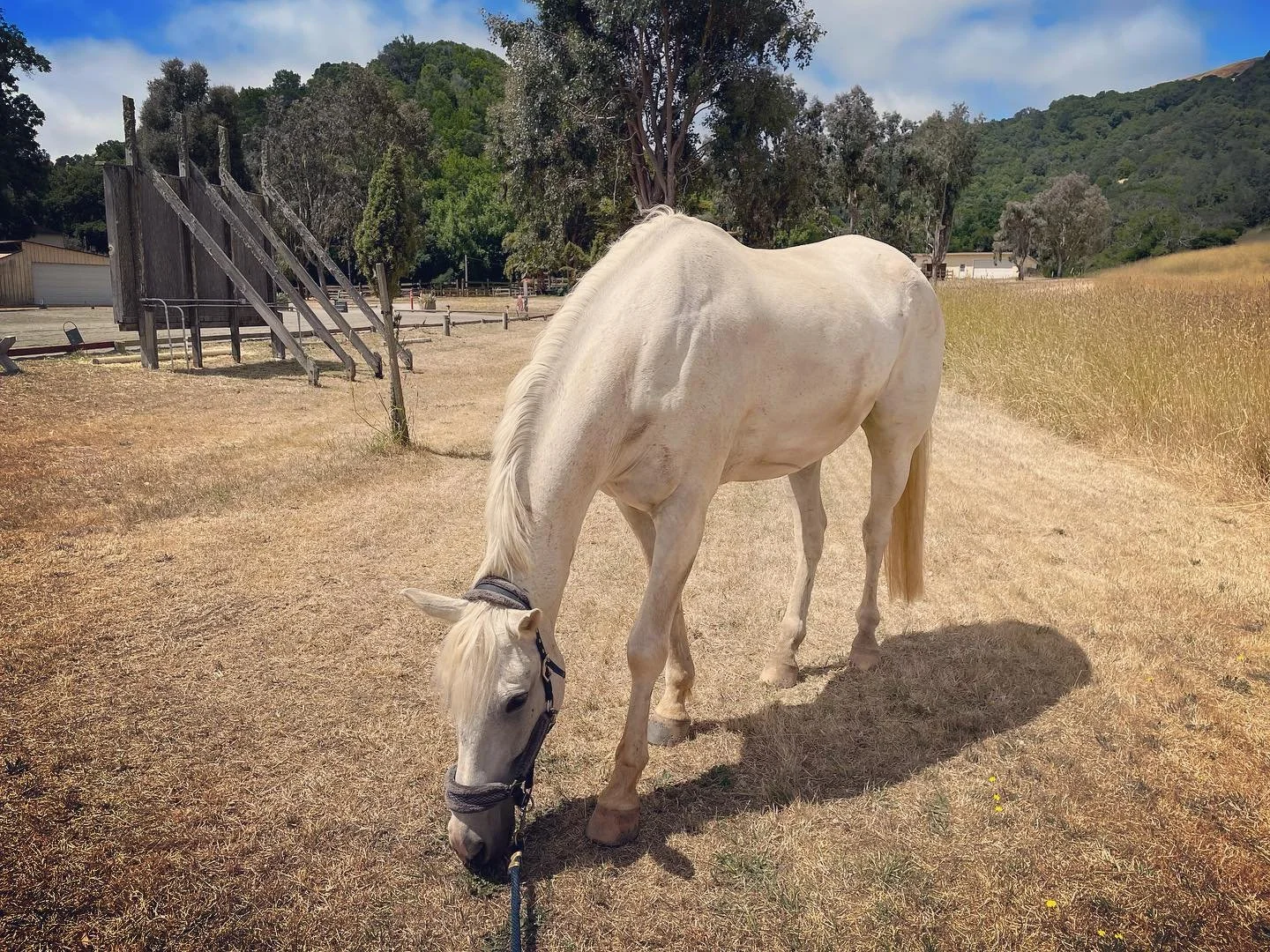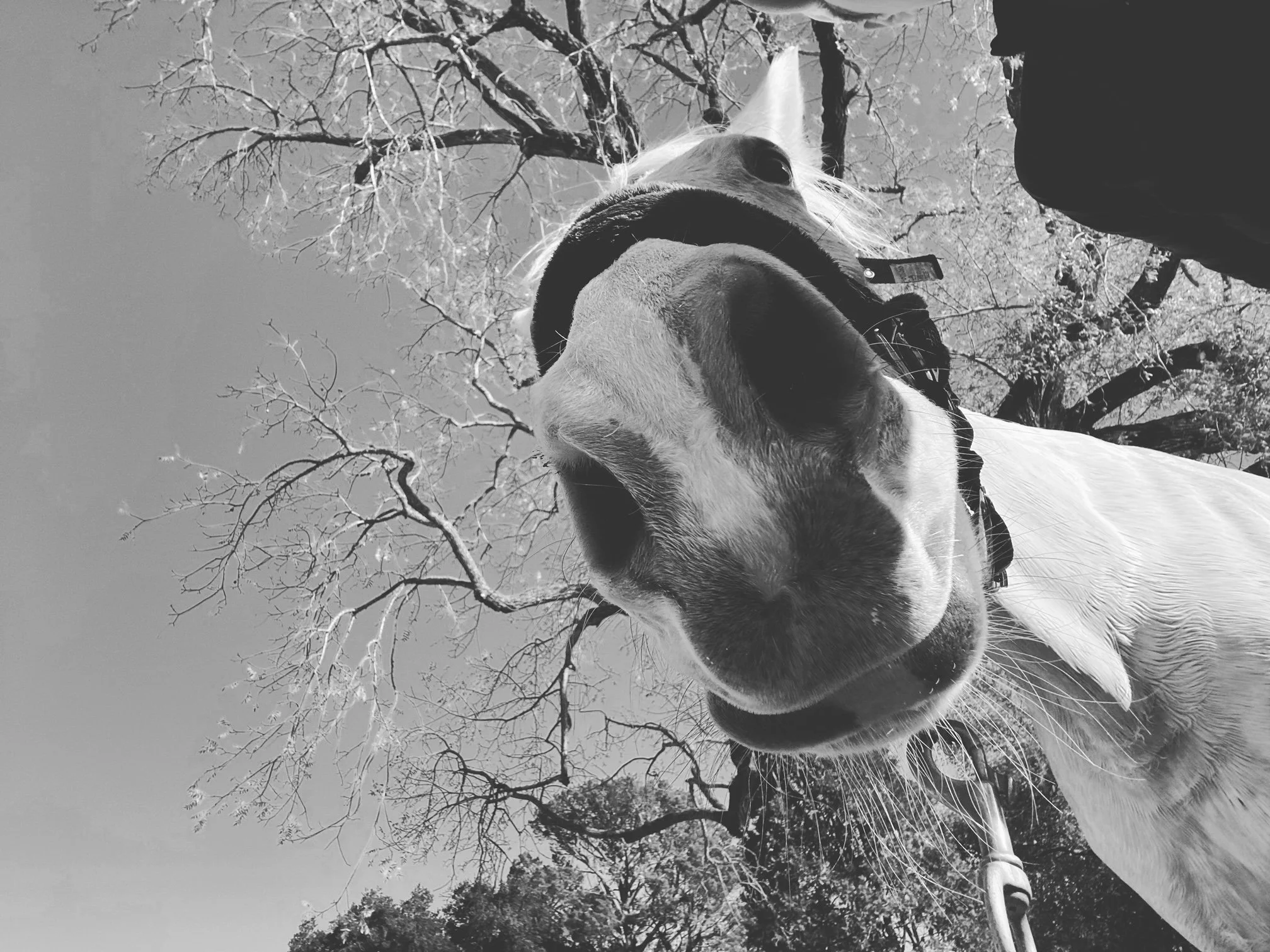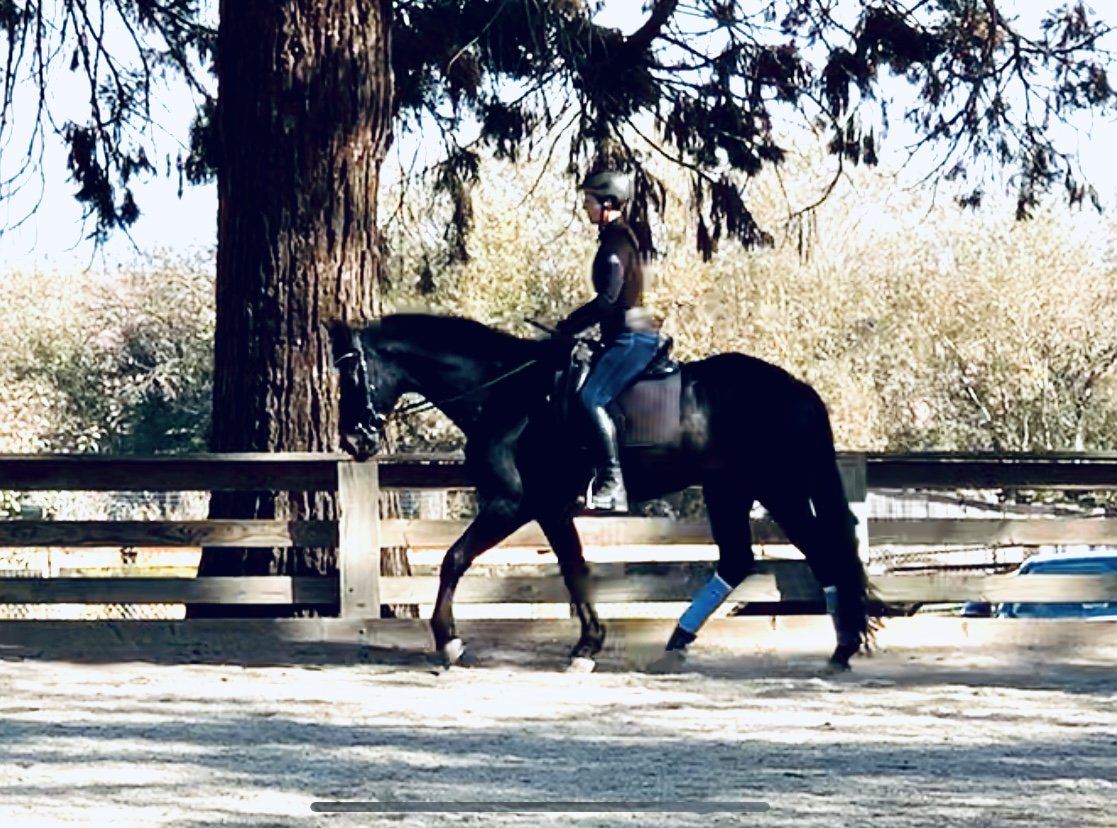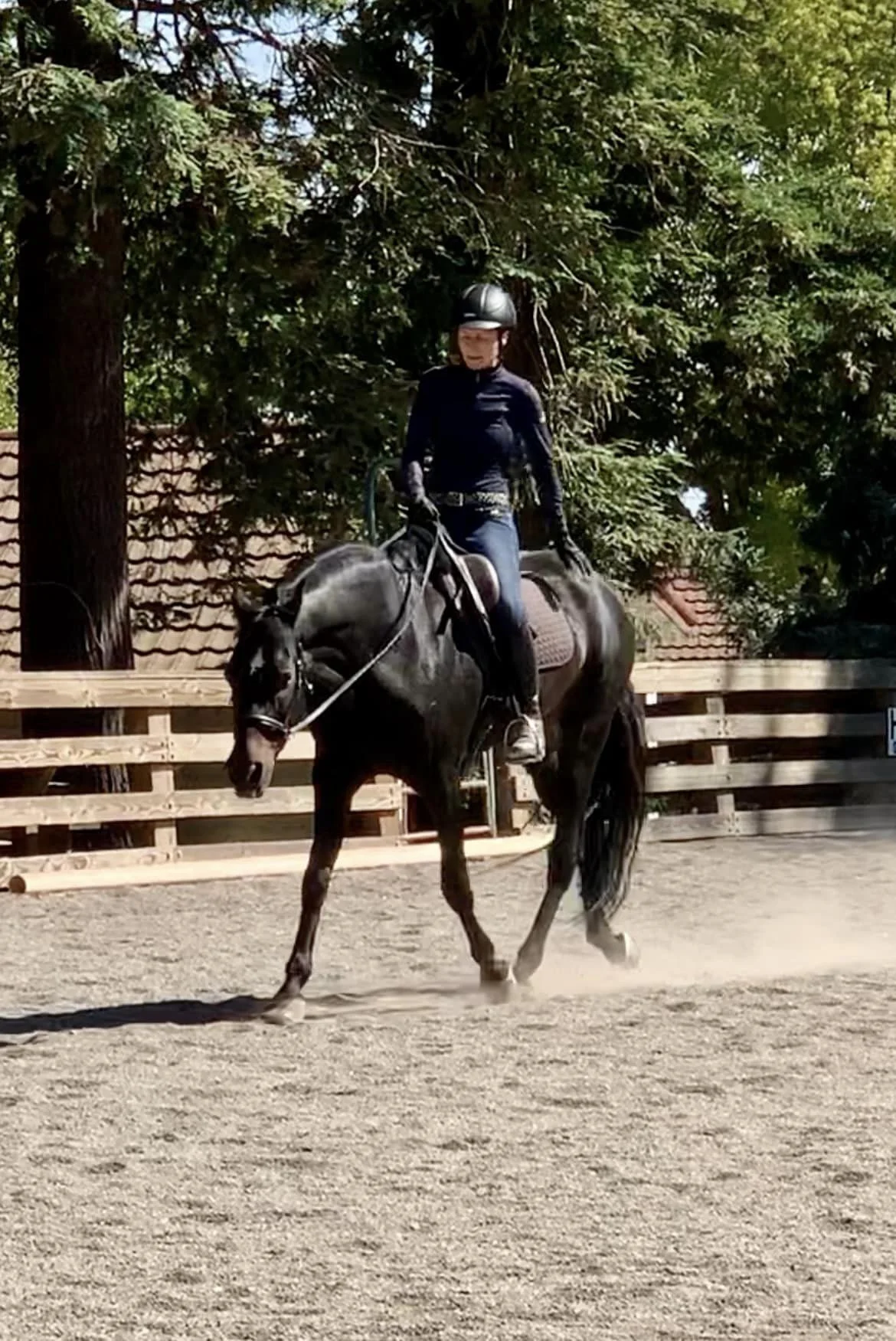You Can't Gymnastisize Your Way out of Shut Down
For quite some time, I’ve felt a bit stuck in my riding and training. I learned that the conventional competition barns weren’t a place I could help horses in the way I wanted to and had pursued studying with a couple of classical German trainers I highly respect. But everything had fallen flat. I’ve continued to study and work on myself and enjoy my horse time, but was missing something. Until about five weeks ago.
At the Western States Horse Expo, I saw a Warwick Schiller demo. At that point I was peripherally aware of him on FB. And much to my own shame (and bias), having worked with horses who had been trained cowboy style and having shared barns with “natural horsemanship” trainers, I lumped everyone with a cowboy hat and a flag into that category, a category I want no part of.
The demo of what Warwick calls “creating connection through change in focus” or, as the session was called, “relationship before horsemanship,” lit a flame of inspiration instantly. In essence, this was about communicating your awareness of the horse’s shifts in focus to the horse, allowing the horse’s nervous system to accept you as an aware and thereby trustworthy being, and then, as if by magic, seeking to connect with you. Halleluja.
I wandered over to Warwick’s booth in hopes of getting to chat for a moment. He was getting ready to go somewhere, so unfortunately no interesting conversation materialized, but I did leave with a signed copy of “The Principles of Training,” which I devoured in two days.
Now if you know me or have read any part of this blog, you can see that the idea of ‘relationship first’ permeates how I view good horse training. And I would tell you that I had evidence that I had a good relationship with all my training horses – they come to the gate as soon as they see me, even nicker and walk away from their food. I would also tell you that I felt that I was quite present and aware around the horses.
And boy, did I just get a dose of wake up sunshine sprinkled on my red head.
Five weeks in, I’m pretty far down the Warwick Schiller rabbit hole. I’ve also started listening to his podcast, subscribed to his training videos and started working with my training horses at the point that he recommends as the starting point, which is the aforementioned “creating connection through change in focus.” In essence, you gently wave a flag and stop as soon as the horse shift their attention to you. That’s an ear flick in the beginning, later on an eye, and then they follow you around. You do this without expectation. That’s the key. You’re JUST communicating your awareness of their awareness. Whatever happens is icing on the cake.
The first horse I tried this with is an older guy I’m very fond of, who is a bit shut down but can have moments of panic. I bought a flag (gulp) and went into the turnout where he was enjoying some grass. I made some rookie mistakes like not always walking before waving the flag, not turning away when I stopped, and sometimes, when he was at the far end, I couldn’t quite see whether that was an ear flick or not. But I was truly just experimenting and in awe of the communication that was going on between us. And sure enough after approaching me and running off a few times, he started following me around.
Somehow, by the time I tried this with another horse a few days later, I had forgotten about the “no expectations” part. And he ignored my waving flag masterfully for a very, very long time. At some point I felt myself jumping up and down with a wave of anger surging over me, and I thought wow, holy cow, no wonder he’s staying away. I was a bit rattled, walked away and did a bit of deep breathing, returned to the exercise and voila, horse comes over and nuzzles me gently. And, instead of using this moment to deeply connect with him, my trainer ego calls over to the person outside the rail who had been commenting on the happenings, “look at him now.” And the second these words fly out of my mouth, the horse leaves and I can’t believe that I just did it again. I managed to reconnect with him again and called it a day.
When I was driving out to the barn to work with him again, I was a bit unsure. I felt that I blew it a bit and didn’t really have a game plan. I had been allowing him to take all the time he needs to get to the lick and chew and it almost seemed that he was starting to process his early years of trauma (before the current owner). But when I got there, he immediately came to me, followed me, and radiated a sense of joy and “human, looks like you learned lesson 1” attitude. He was also licking me with the dedication a mare would have licking her newborn foal. I was so humbled, I had to sit down for a minute.
The other horse meanwhile had mastered the next step in Warwick’s groundwork progression.
Once you start being more aware, you can’t unsee the stress indicators, the mild concern your horse expresses. You can’t unsee that twitch on the muzzle before the lick and chew. CAT-H is a thing now. You can’t un-feel the clarity of your emotions.
You can’t go back. You start meditating, in my case, again. (I’ve done it a bit around health issues, but didn’t keep it up.) You look up polyvagal theory. You start buying books.
But the key here really is having a process to learn being a better human around the horses. It’s not just someone telling you, oh you need to have awareness around your horse or to not have negative emotions around them, let alone punish them. I’ve known that for years. I find Warwick’s process extremely helpful in my own education as it’s so detailed that you can figure out where you’re going right or wrong yourself.
I know that I’m barely scratching the surface but one thing is clear. The horse’s nervous system has to be in the parasympathetic state to learn, and if we keep missing the signs and are woefully unaware of our own bodies, thoughts, and feelings, we create emotionally stunted horses who are shut down, high-anxiety, or in some cases dangerous because they don’t get the chance to learn to self-regulate. Even the most appropriate dressage exercises will not help a horse to the full extent if his nervous system is stuck in a sympathetic state.
I’m super excited about getting better at this and where it will lead. My horses like it and that’s all the validation I need.





